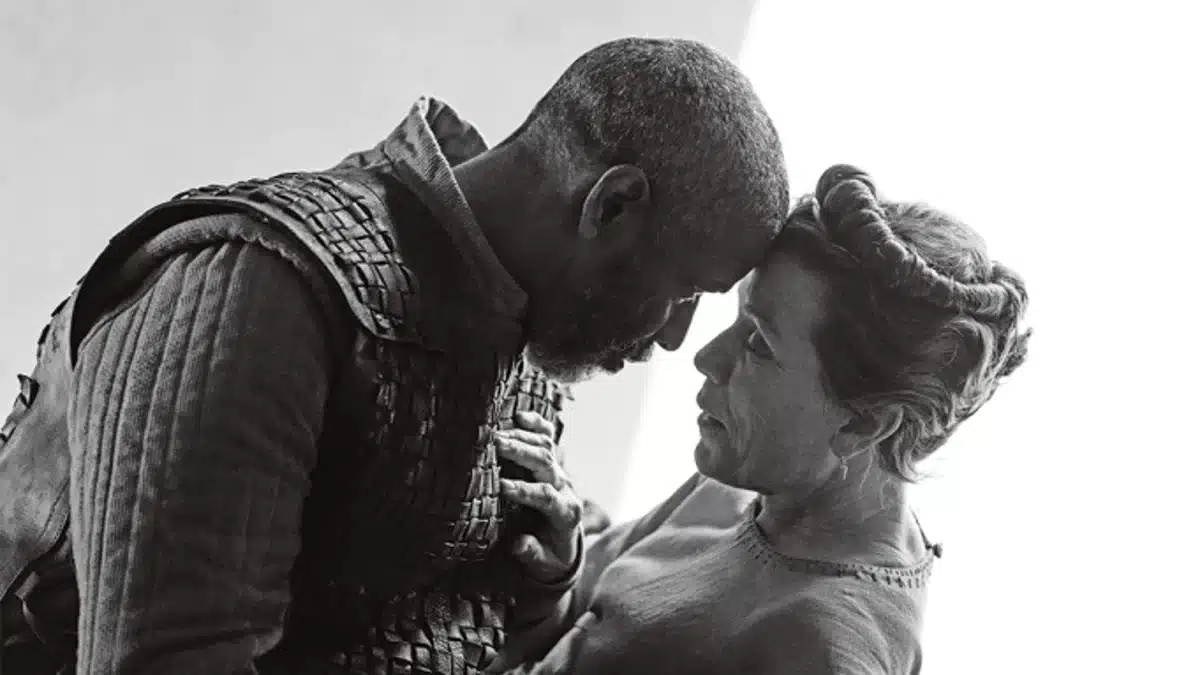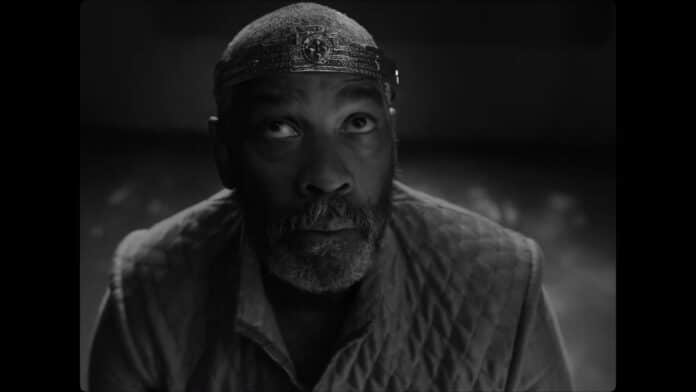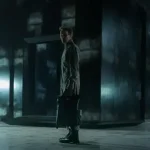The English playwright William Shakespeare has had such an impact on both the literary and theatrical mediums that his stories have taken on many different forms over the years.
His dramatic and tragic retelling of Macbeth has been performed in over 25 languages, each with a unique interpretation of the original.
These adaptations have not only made the story more culturally relevant, but they have also leveraged the story’s amazing political and humane crux to demonstrate that its evergreen nature will never die.
From filmmaker J. Stuart Blackton’s 1908 Macbeth to Dileesh Pothan’s Malayalam film ‘JOJI,’ the original text has undergone a complete transformation.
So it’s surprising that Joel Coen’s “The Tragedy of Macbeth” doesn’t breathe new life into the text and give it a more urgent and current approach.
Instead, it pares it down to the bare bones and tells a ‘terribly evil’ storey using Shakespear’s own words.
Also Read:
- Explaination & Ending Of ‘The Tragedy of Macbeth’ (2021)
- Is ‘The Tragedy of Macbeth’ (2021) Movie Based on a True Story?
For those who are uninitiated or blissfully ignorant, The Tragedy of Macbeth is about a valiant Scottish general named Macbeth (played by Denzel Washington) who meets the notorious ‘three witches’ on his road to triumph over the joint forces of Norway and Finland.
The three sisters appear to be evil, and their forecasts, strange and shocking as they are, seem to plant something in Macbeth’s mind and spirit.
They anticipate that the general will become Thane of Cawdor soon after and subsequently the king.
He’s escorted by his sergeant Banquo (Bertie Carvel), who tells him not to listen to the witches and to go welcome the king with a triumphant face.
Macbeth is irritated that his king Duncan (Brendan Gleeson) announces his worthless son Malcolm (Harry Melling) as his heir, despite his calm and cool demeanour while meeting him.
Meanwhile, Lady Macbeth (Frances McDormand) detects Macbeth’s discomfort and, after reflecting on the witches’ warnings, attempts to persuade him to carry out the next steps himself.
Macbeth, who had fallen into an ambitious trance, becomes greedy and decides to assassinate the king.
The result is a politically motivated act of treason, which leads to insanity and paranoia. Macbeth is compelled to face the demons that perch inside his skull after a sequence of dark and sad incidents.
His own mortality is called into question to the point of complete, irreversible craziness and catastrophe.
Symmetry of #TheTragedyOfMacbeth
Streaming on Apple TV+ January 14 pic.twitter.com/oQ1oG1qMvM
— Apple TV (@AppleTV) January 12, 2022
In terms of the picture itself, this is Joel Coen’s first solo effort as a director. Joel Coen, one-half of the infamous Coen Brothers, is responsible for a number of sagas that examine existential and moral challenges in a smarter, more darker light.
The Coen brothers’ wit makes them one of the greatest and most recognisable directors in American cinema.
Joel Coen’s “The Tragedy of Macbeth” takes a darker, more lonely approach to Shakespeare’s tragedy.
Coen attempts to make his storey feel like an act of theatre aimed to elicit an immediate response by filming it almost entirely on a studio. He combines German expressionism’s visual flare with Bergman’s concern with close-ups.
The foggy and cold-blooded ghost story he films (with the help of Cinematographer Bruno Delbonnel) is meant to frighten you into becoming a monster.
But all it left me with was a feeling of utter tiredness. It doesn’t move a single hair on your body, and the visual style is completely ineffective.
That isn’t to say the picture isn’t worthwhile. Denzel Washington and Frances McDormand are outstanding in their respective roles.
The city of Washington, in particular, is breathtaking. His Macbeth is a more mature, nuanced version of the character, and while the picture feels rushed towards its eventual bloodlust, he gives it a sense of direction.

Lady Macbeth, like the original text, isn’t allowed much freedom to be a supreme catalyst for the whole narrative, despite McDormand’s best efforts.
The fact that Coen adds no new information to this Shakespearean story renders its presence pointless and worthless.
It certainly serves those seeking a more creative take to the age-old subject, but the dense language (which I didn’t find a problem with within the 2015 Macbeth) leaves you feeling abandoned as a viewer.
Apart from the CGI rendition of the three witches, we see in the film’s introduction, “The Tragedy of Macbeth” offers nothing outstanding.
Instead, it’s a drab, understated adaption that doesn’t do much to impress.














